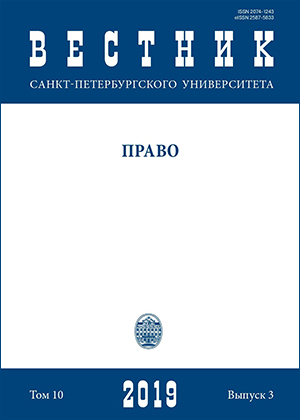Интегрирование искусственного интеллекта в общественную жизнь: некоторые этические и правовые проблемы
DOI:
https://doi.org/10.21638/spbu14.2019.303Аннотация
Распространение систем искусственного интеллекта порождает ряд технических, философских, юридических и этических вопросов, связанных как с допустимостью применения таких систем в тех или иных областях, так и с необходимостью соблюдения этических норм при их создании, а также возможностью внедрения этических норм в процесс принятия решений искусственным интеллектом. Поскольку для многих людей религия является основой мировоззрения, присутствуя в общественной жизни именно этикой, а не догматикой, то исследование различных аспектов соотношения религии и искусственного интеллекта также крайне актуально. Автор анализирует этико-религиозные проблемы, связанные с созданием и распространением систем искусственного интеллекта, и предлагает пути правового регулирования общественных отношений, связанных с применением искусственного интеллекта. В частности, затрагиваются следующие проблемы: правосубъектность и деликтоспособность искусственного интеллекта; сакрализация искусственного интеллекта; ответственность за вред, причиненный системами искусственного интеллекта; принятие искусственным интеллектом решений в отношении прав и обязанностей людей; усугубление расслоения и неравенства; массовая безработица; интеллектуальное превосходство носителей искусственного интеллекта над человеком; отчуждение людей друг от друга, одиночество человека; возможность следования этическим нормам при принятии решений искусственным интеллектом.
Ключевые слова:
искусственный интеллект, роботы, религия, этика, нравственные аспекты робототехники, правовое регулирование, социальное регулирование, интегрированная юрисдикция
Скачивания
Библиографические ссылки
Загрузки
Опубликован
Как цитировать
Выпуск
Раздел
Лицензия
Статьи журнала «Вестник Санкт-Петербургского университета. Право» находятся в открытом доступе и распространяются в соответствии с условиями Лицензионного Договора с Санкт-Петербургским государственным университетом, который бесплатно предоставляет авторам неограниченное распространение и самостоятельное архивирование.






